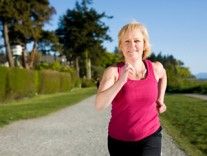This time of year most of us enjoy the extra hour of sleep as we get as we turn our clocks back, but it’s not nearly enough to make up for the massive amounts of sleep we are losing throughout the rest of the year.
“We are a sleep-deprived society, and we often pay for that lack of sleep in ways we may not realize,” said Dr. Aneesa Das, assistant director of the Sleep Program at The Ohio State University Wexner Medical Center. “Depending on your age, it can affect everything from your complexion to your weight to your heart, and can lead to some very serious medical issues,” she said.
“For children, sleep deprivation can lead to behavior problems, trouble focusing and learning in school and it can affect their immune systems,” said Dr. Aneesa Das, a sleep medicine specialist at Ohio State’s Wexner Medical Center. “Chronic tiredness makes it harder to cope and process what’s going on around you.”
When children enter the teen years, sleep becomes a bigger issue. Das says a teen’s circadian rhythm, or internal body clock, tells them to stay awake later and sleep later than children and adults do. She says only 15 percent of teenagers get the recommended sleep they need.
“Sleep is time the body uses to restore itself. Muscles and other tissues repair themselves, hormones that control growth, development and appetite are released. Energy is restored and memories are solidified, so we need to try to get regular sleep on a regular basis,” Das said.
Source:The Ohio State University Wexner Medical Center

